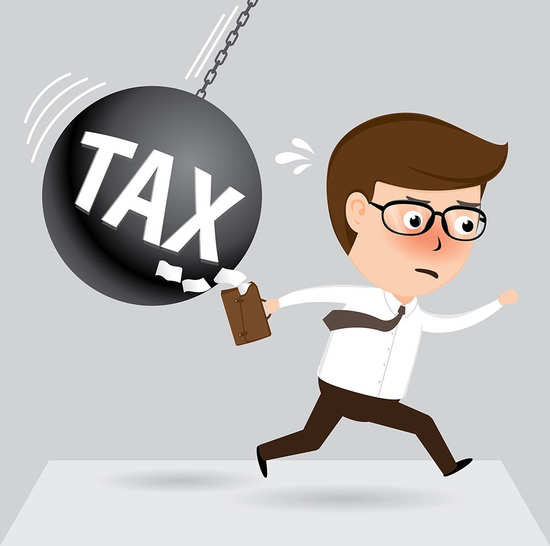
While most people are accustomed to being in debt for homes, cars, and other things, being in debt to the IRS is a different matter altogether. Since the federal government does not appreciate it when folks don't pay the amount of taxes they owe, the penalties for tax debt are often severe. Unfortunately, many people try to ignore their tax debt problems, hoping they will magically disappear. Instead, they only get worse. If you are in trouble with the IRS, here are some tips for how to deal with your tax debt.
Make It Your Top Priority
First of all, make your IRS tax debt your top financial priority. Since the agency is allowed to seize your business assets or even your home, it is often suggested that paying off tax debt is a higher priority than paying a mortgage. Thus, rather than find yourself dealing with property liens and wage garnishments for years, get serious about dealing with tax debt and resolve this issue as fast as possible.
Loans and Lines of Credit
If you happen to be a business owner who owes back taxes to the IRS, taking out a bank loan or using a line of credit can sometimes be your ticket to paying off your tax debts. While the interest you wind up paying will probably not be deductible, it should be much less than the interest rates charged by the IRS. In most instances, the IRS charges penalties on unpaid taxes that accrue at .5% per month, or six percent annually. This, coupled with an additional three percent charged on your balance calculated at the federal short-term interest rate, means you will have at least a nine percent interest rate staring you in the face until your taxes are paid.
Retirement Account Loans
Along with traditional bank loans or lines of credit, you can also take out loans from your pension plan or retirement accounts like a 401(k) to pay your tax debt. Though you will lose some investment returns and be subject to paying interest when replacing the money, the difference will be much less than it might be if you continue to carry the IRS debt. However, don't be like many people who panic and simply withdraw money from their retirement accounts without thinking. If you do so and thus make it a taxable distribution, you'll have even more money that needs to be paid back. Consult with your CPA about withdrawal strategies that won’t set you back too much.
Installment Payment Plans
If you have no viable means of immediately paying off your entire tax debt balance, don't give up. Instead, you can work with the IRS to set up an installment payment plan to solve your problem. If you select this option, you can have as much as 72 months to pay back your debt. Also, if the debt you owe is under $10,000, you won't even have to disclose any financial information, since you can set up your plan on the irs.gov website. However, if you owe more than $10,000, the IRS requires you to submit detailed information about your monthly income and expenses. It’s always best to consult with a CPA prior to making any installment payment agreement with the IRS.
An "Offer in Compromise”
Should you feel your financial situation is as dire as it could ever get, you do have the option of making what is known as an "offer in compromise" to the IRS. In other words, you are making a plea to the IRS to reduce the amount of money you owe the agency. While this initially sounds like you can wave a magic wand and suddenly owe thousands of dollars less to the IRS, don't count on it. In the view of the IRS, your financial circumstances would have to be extremely dire for the agency to agree to this option. If you have suffered a catastrophic medical event or lost a job, you may succeed with this. However, if your income is still quite high, don't expect the IRS to cut your tax bill.
If It Sounds Too Good to be True…
While watching television, you have likely seen commercials for companies claiming they can settle your IRS tax debt for pennies on the dollar. Of course, they make it sound oh so easy, and likely have you thinking that their solution is the answer to your prayers. However, as you know, if it sounds too good to be true, it usually is, so be very wary of dealing with these companies. Instead, speak to an experienced and trusted CPA to get experienced advice you know is reliable and truthful.
Is Your Debt Collectible?
While the IRS of course wants the money it says you owe them, it also does not want to waste lots of time, energy, and money trying to collect a debt that may in fact not be very collectible. Ultimately, any decisions made by the IRS as to how to proceed in collecting your tax debt will come down to the current amount of your disposable income, how much equity and assets you own that can be used to pay off the debt, and other related factors. During the COVID-19 pandemic, the IRS has been much more lenient when trying to collect taxpayer debt, but that is not expected to last forever. Therefore, if you have unresolved tax debt, striking while the iron is hot may give you an edge you won't have a few months from now.
If you try to go it alone when dealing with IRS tax debt, you are virtually certain to make an already tough situation much worse. To get your questions answered and embark on a viable plan to solve your problem, consult soon with a CPA whose advice and guidance you can trust.
